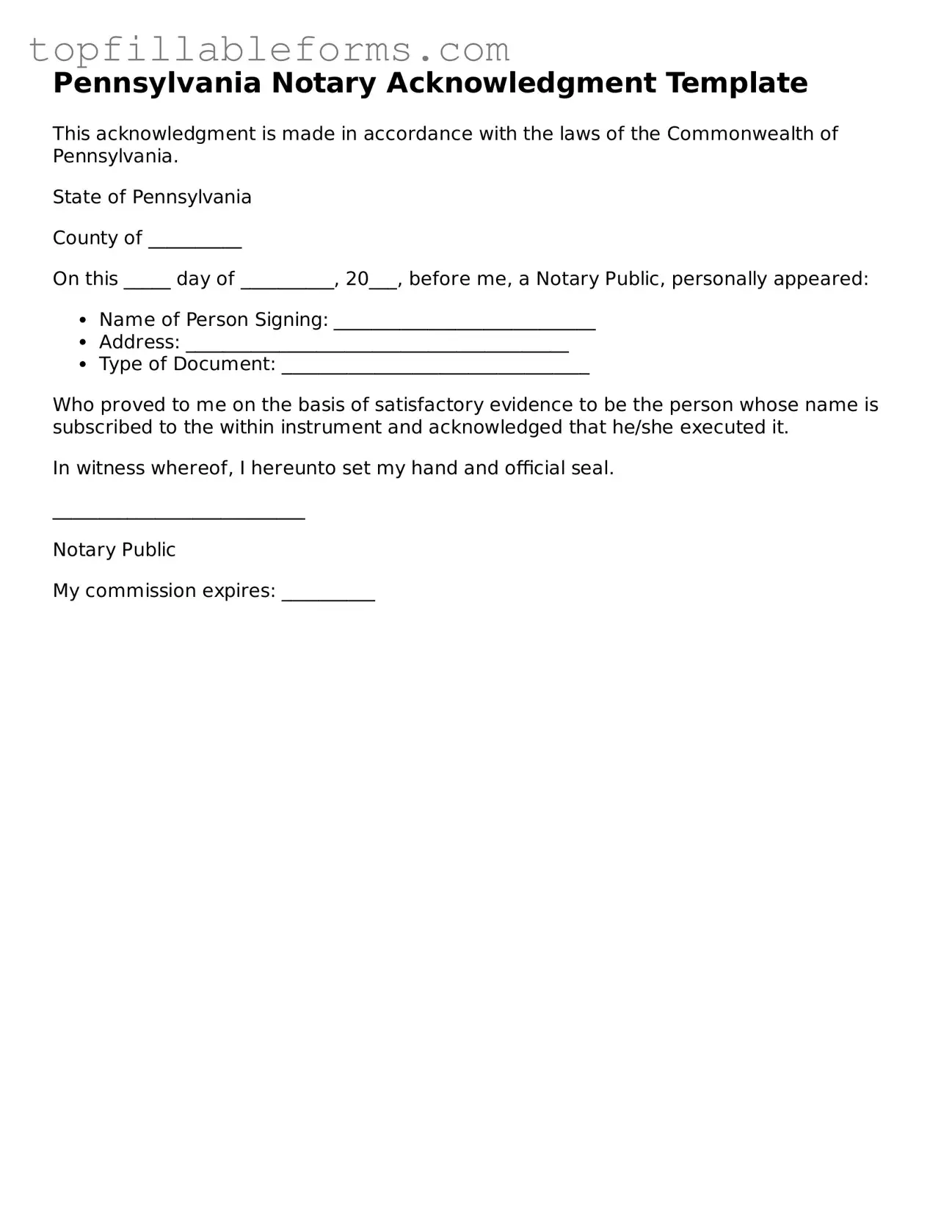Attorney-Verified Notary Acknowledgement Template for Pennsylvania
The Pennsylvania Notary Acknowledgement form is a crucial document used to verify the identity of individuals signing important legal documents. This form provides assurance that signatures are genuine and that signers are acting voluntarily. Understanding its significance can help ensure the integrity of your legal transactions.
Open Notary Acknowledgement Editor Here

Attorney-Verified Notary Acknowledgement Template for Pennsylvania
Open Notary Acknowledgement Editor Here
Finish the form now and be done
Finish your Notary Acknowledgement online by editing, saving, and downloading fast.
Open Notary Acknowledgement Editor Here
or
▼ PDF File
